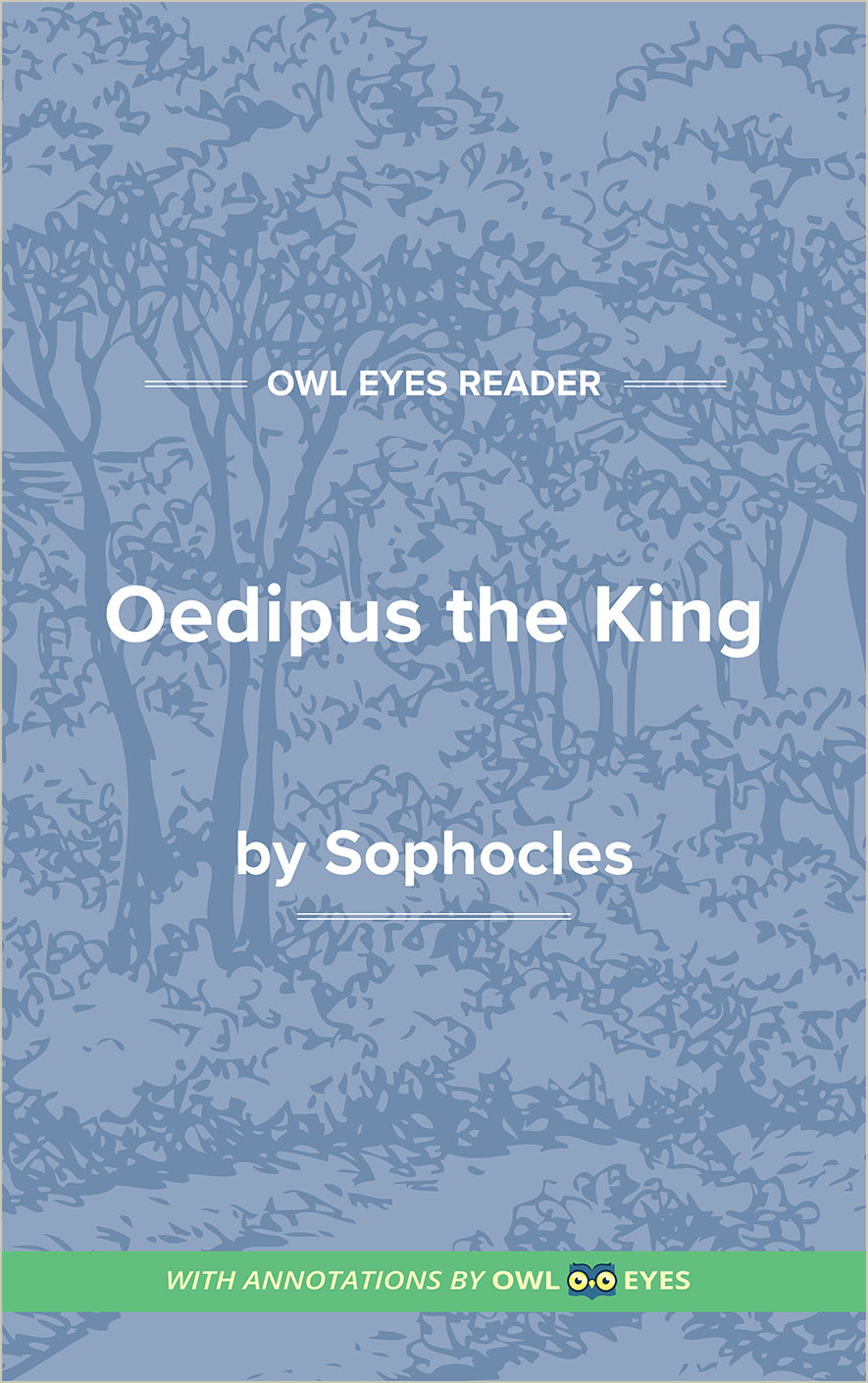- Annotated Full Text
- Literary Period: Classical
- Publication Date: -429
- Flesch-Kincaid Level: 6
- Approx. Reading Time: 59 minutes
Oedipus the King is considered Sophocles’s greatest work and is cited by Aristotle as the exemplar text of all Greek tragedy. Sophocles’s use of dramatic irony intensifies the empathetic relationship between the audience and the characters on stage. The most famous part of the story, in which Oedipus fulfills a prophecy to kill his father and marry his mother, occurs before the drama begins. This drama is relayed to the audience through the chorus, a group of actors who comment on the action of the story, and the drama itself commences with a plague that has struck Thebes because the king’s murderer was never found. Oedipus vows to find the man, not knowing that in fact he is the murderer, and he blindly ignores warnings from the blind prophet Tiresias to stop his search. Throughout the story, Oedipus’s hamartia, or fatal flaw, is his hubris, or pride, which makes him believe that he can outwit the gods and escape the fate outlined in his prophecy. In his attempt to defy fate, Oedipus inadvertently seals it suggesting that even with free will, man is subject to the will of the gods. Oedipus the King has become a definitive tragedy in which subtle character development and audience engagement through dramatic irony were established as touchstones of good drama.
- Annotated Full Text
- Literary Period: Classical
- Publication Date: -429
- Flesch-Kincaid Level: 6
- Approx. Reading Time: 59 minutes

